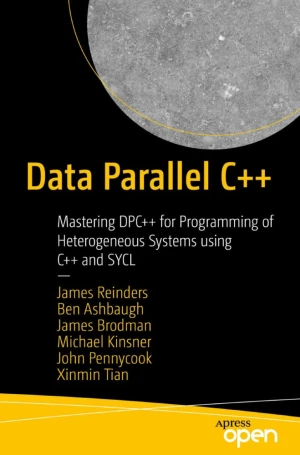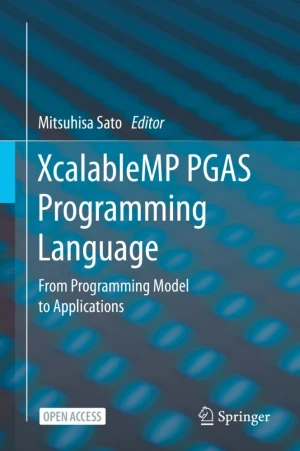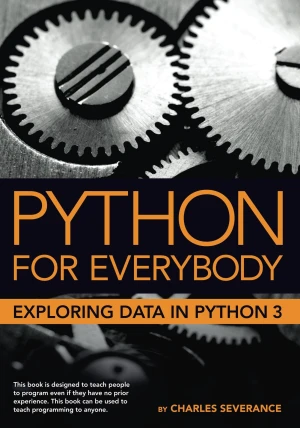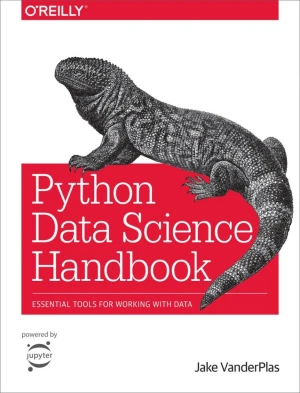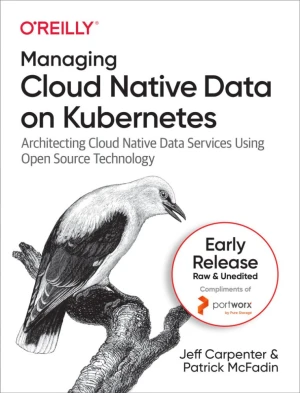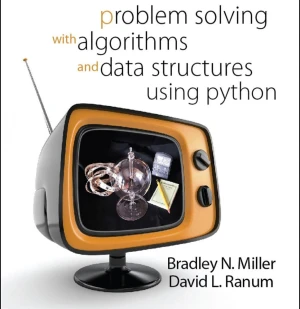Data Parallel C++, 2nd Edition
Programming Accelerated Systems Using C++ and SYCL
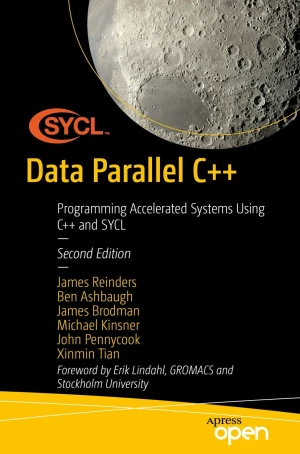
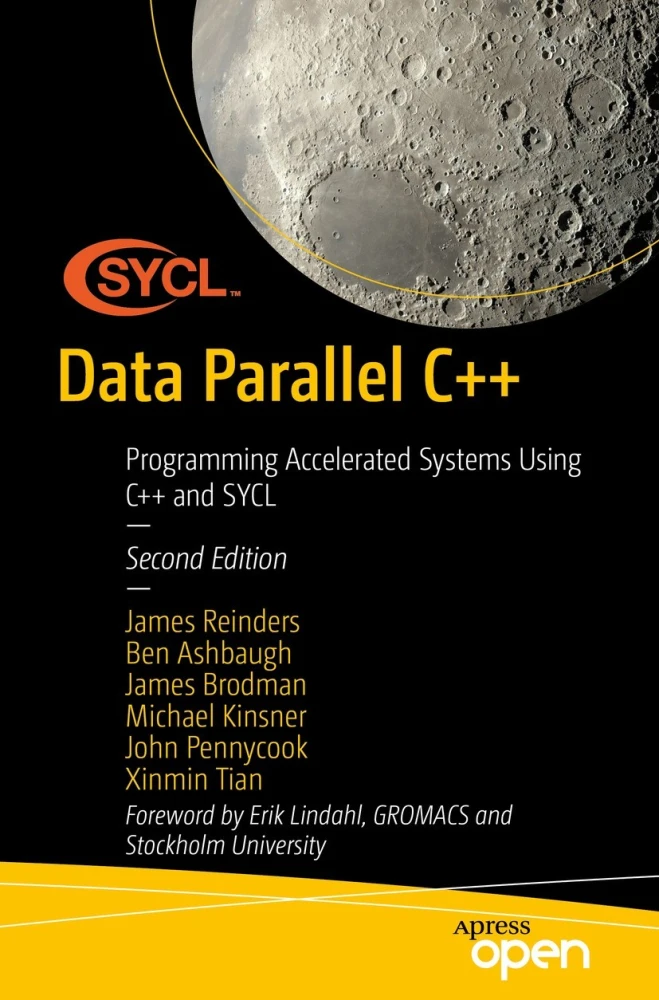
Book Details
| Authors | James Reinders, Ben Ashbaugh, James Brodman, Michael Kinsner, John Pennycook, Xinmin Tian |
| Publisher | Apress |
| Published | 2023 |
| Edition | 2nd |
| Paperback | 630 pages |
| Language | English |
| ISBN-13 | 9781484296905, 9781484296912 |
| ISBN-10 | 1484296907, 1484296915 |
| License | Creative Commons Attribution |
Book Description
Learn how to accelerate C++ programs using data parallelism and SYCL.
This open access book enables C++ programmers to be at the forefront of this exciting and important development that is helping to push computing to new levels. This updated second edition is full of practical advice, detailed explanations, and code examples to illustrate key topics.
SYCL enables access to parallel resources in modern accelerated heterogeneous systems. Now, a single C++ application can use any combination of devices - including GPUs, CPUs, FPGAs, and ASICs - that are suitable to the problems at hand.
This book teaches data-parallel programming using C++ with SYCL and walks through everything needed to program accelerated systems. The book begins by introducing data parallelism and foundational topics for effective use of SYCL. Later chapters cover advanced topics, including error handling, hardware-specific programming, communication and synchronization, and memory model considerations.
All source code for the examples used in this book is freely available on GitHub. The examples are written in modern SYCL and are regularly updated to ensure compatibility with multiple compilers.
- Accelerate C++ programs using data-parallel programming
- Use SYCL and C++ compilers that support SYCL
- Write portable code for accelerators that is vendor and device agnostic
- Optimize code to improve performance for specific accelerators
- Be poised to benefit as new accelerators appear from many vendors
This book is available under a Creative Commons Attribution license (CC BY), which means that you are free to copy, distribute, and modify it, as long as you give appropriate credit to the original author.
If you enjoyed the book and would like to support the author, you can purchase a printed copy (hardcover or paperback) from official retailers.
Download and Read Links
Share this Book
[localhost]# find . -name "*Similar_Books*"
Data Parallel C++
Learn how to accelerate C++ programs using data parallelism. This open book enables C++ programmers to be at the forefront of this exciting and important new development that is helping to push computing to new levels. It is full of practical advice, detailed explanations, and code examples to illustrate key topics. Data parallelism in C++ enables
XcalableMP PGAS Programming Language
XcalableMP is a directive-based parallel programming language based on Fortran and C, supporting a Partitioned Global Address Space (PGAS) model for distributed memory parallel systems. This open book presents XcalableMP language from its programming model and basic concept to the experience and performance of applications described in XcalableMP.�
Python for Everybody
Python for Everybody is designed to introduce students to programming and software development through the lens of exploring data. You can think of the Python programming language as your tool to solve data problems that are beyond the capability of a spreadsheet. Python is an easy to use and easy to learn programming language that is freely availa
Python Data Science Handbook
For many researchers, Python is a first-class tool mainly because of its libraries for storing, manipulating, and gaining insight from data. Several resources exist for individual pieces of this data science stack, but only with the Python Data Science Handbook do you get them all - IPython, NumPy, Pandas, Matplotlib, Scikit-Learn, and other relate
Managing Cloud Native Data on Kubernetes
Is Kubernetes ready for stateful workloads? This open source system has become the primary platform for deploying and managing cloud native applications. But because it was originally designed for stateless workloads, working with data on Kubernetes has been challenging. If you want to avoid the inefficiencies and duplicative costs of having separa
Problem Solving with Algorithms and Data Structures, 3rd Edition
The study of algorithms and data structures is central to understanding what computer science is all about. Learning computer science is not unlike learning any other type of difficult subject matter. The only way to be successful is through deliberate and incremental exposure to the fundamental ideas. A beginning computer scientist needs practice

